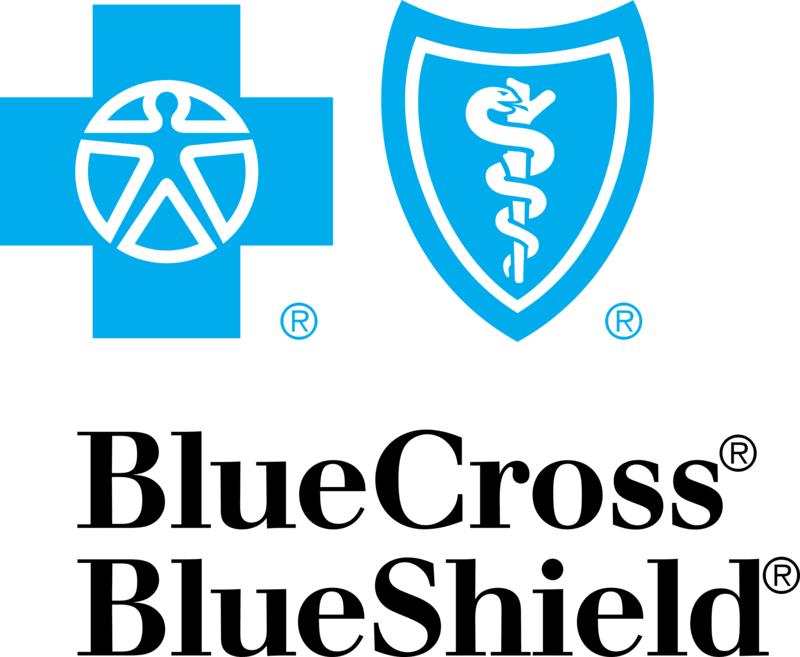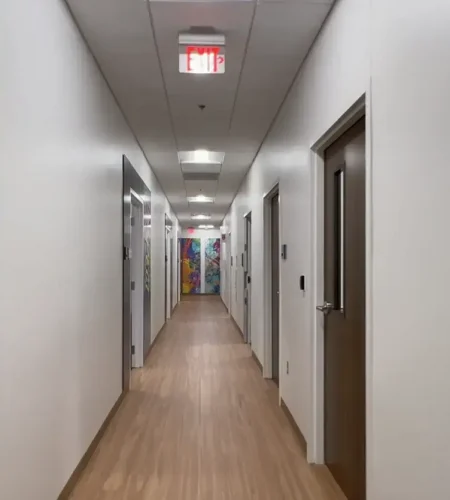Blue Cross Blue Shield of Texas (BCBSTX) Coverage for Bipolar Disorder Treatment and Counseling for Teens in Dallas, Texas
Does BCBS of Texas cover teen bipolar disorder treatment in Texas? Gain answers to that and more so you can maximize your benefits for bipolar treatment at BasePoint Academy’s rehab centers in Texas that take BCBS insurance. Our dedication to teens’ mental health and addressing psychiatric illnesses at their root cause can make a significant difference in your child’s life.
Do BCBSTX Insurance Plans Cover Bipolar Disorder Treatment in Texas for Adolescents?
Yes, BCBSTX insurance plans typically cover bipolar disorder treatment for adolescents in Texas. Coverage often includes a range of services such as therapy, medication, and hospital stays, addressing the unique needs of teenage challenges associated with bipolar disorder. However, the specifics can vary based on your plan and other factors.
To understand the full extent of BCBS TX bipolar disorder coverage, it’s essential to review your policy details or confirm your coverage with a reputable bipolar disorder treatment center like BasePoint Academy. We can provide information on coverage limits, copayments, and the process for accessing mental health services. Working with a mental health professional can also help ensure that your treatment plan aligns with your insurance benefits.
Teenage Bipolar Disorder Insurance Coverage
Our complimentary assessment with a licensed clinician will provide you with a recommendation for the appropriate level of care for your teen struggling with bipolar disorder. We can also check your insurance coverage levels.
Call us today to schedule a complimentary same-day assessment at (972) 357-1749 or complete our inquiry form.

Teen Bipolar Disorder Treatment Admissions Form
What Is Teenage Bipolar Disorder?
Teenage bipolar disorder, formerly referred to as manic depression, is a mental health condition characterized by extreme mood swings, including periods of intense highs (mania or hypomania) and deep lows (depression). These mood shifts can significantly impact daily functioning, affecting school performance, relationships, and overall well-being. Recognizing and treating this mood disorder early is crucial for managing symptoms effectively.
Approximately 1% to 2% of all children and teenagers in the U.S. live with bipolar disorder. If you’re concerned that your teenager might be experiencing bipolar disorder, it’s important to seek professional help. Bipolar symptoms can be challenging to distinguish from typical adolescent behavior, but with proper diagnosis and treatment, including therapy and medication, teens can lead fulfilling lives. Understanding and support from family and friends also play a key role in a youth’s recovery—call us below to schedule your teen’s free assessment today.
Contact BasePoint Academy Today
Contact us today to schedule a free confidential assessment for your teen with a licensed clinician.
You can also get in touch to talk with our mental health experts about treatment needs, care options and your insurance coverage levels.
Call: (972) 357-1749Check Your InsuranceIs Bipolar Disorder a Disability in Texas for Mental Health?
In Texas, bipolar disorder can be classified as a disability under the Americans with Disabilities Act (ADA) if it significantly impairs significant life activities. This classification means that individuals with bipolar disorder may be eligible for certain protections and accommodations in educational and workplace settings.
However, many conditions apply. For example, The ADA applies only to businesses with 15+ employees. There are also a handful of eligibility guidelines when it comes to a bipolar diagnosis qualifying as a disability. If your child is struggling with bipolar disorder, understanding these protections can help in accessing bipolar support and teen mental health resources. It’s advisable to consult with a legal expert or advocate to navigate the process of securing accommodations or benefits related to mental health.
What are the Signs and Symptoms of Bipolar Disorder in Teens and Adolescents?
Signs and symptoms of bipolar disorder in teens and adolescents include extreme mood swings, such as manic episodes characterized by heightened energy and irritability, and depressive episodes involving persistent sadness and low energy. These fluctuations can disrupt daily life and are often influenced by factors such as teenage emotions.
A combination of genetic, biological, and environmental factors influences teen bipolar disorder. Bipolar genetics play a significant role, as having a family history of the disorder increases the likelihood of developing it. Additionally, brain chemistry and neurochemical pathway imbalances can contribute to its onset. Environmental stressors, such as trauma, major life changes, or even everyday teenage stress, can also trigger or exacerbate symptoms.
Understanding bipolar causes, signs, and symptoms is crucial for early intervention and bipolar management. If you notice significant changes in your teen’s mood or behavior, it’s essential to seek professional help. A mental health professional can provide an accurate diagnosis and develop a tailored treatment plan to support your child’s well-being.
What is the Most Effective Treatment for Bipolar Disorder in Teens?
The most effective treatment for bipolar disorder in teens typically involves a combination of medication and therapy. Medications, such as mood stabilizers and antipsychotics, help manage symptoms, while therapy, including Cognitive Behavioral Therapy (CBT), addresses behavioral and emotional challenges. This integrated approach helps stabilize mood and improve overall functioning.
If you’re supporting a teenager with bipolar disorder, collaborating with healthcare professionals to develop a personalized treatment plan is crucial. Regular follow-ups and adjustments to the plan may be necessary to ensure the best outcomes and address any emerging needs. Family support and education are also critical components in the management process. Contact us to learn more about BasePoint Academy’s comprehensive and effective approach to bipolar treatment.


Texas and National Adolescent Bipolar Disorder Statistics and Info
From January 1, 2004, to December 31, 2008, a study of youths in Texas juvenile correctional facilities revealed that 98% had at least one psychiatric disorder, with 19.4% diagnosed with bipolar disorder. Research published in the 2018 American Journal of Psychiatry identified childhood sleep and anxiety disorders as significant predictors of bipolar disorder.
A 2020 trial demonstrated that Family-Focused Therapy (FFT) extended wellness periods between mood episodes and suicidal thoughts in at-risk youths (9 to 17). Adolescents with bipolar disorder often turn to drugs or alcohol to self-medicate during depressive episodes, increasing their susceptibility to substance use disorder. Having a first-degree relative with bipolar disorder increases a teen’s likelihood of developing the condition by about ten times, regardless of whether the relative is on the father’s or mother’s side.
BasePoint Academy Accepts Health Insurance
We accept most major health insurance providers in Texas and can check your treatment coverage levels on your behalf.
Texas Treatment Programs for Teenage Bipolar Disorder that Accept BCBS of Texas Health Insurance Policies
BasePoint Academy is proud to offer a selection of accredited treatment facilities in and around Dallas, Texas. Our specialized outpatient treatment for teens with bipolar disorder is designed to address their unique challenges with compassion and expertise. Conveniently located, we provide high-quality care that allows your child to continue with their daily activities and responsibilities while fostering hope and resilience.
- Arlington, Texas: 3900 Arlington Highlands Blvd, Suite 237, Arlington, TX 76018
- Forney, Texas: 713 W Broad St, Suite 200, Forney, TX 75126
- Frisco, Texas: 8275 Judges Way, Suite 100I, Frisco, TX 75036
- McKinney, Texas: 4733 Medical Center Drive, McKinney, TX 75069

Bipolar Program in Arlington, Texas
Roughly 20 miles west of Dallas and 12 miles east of Fort Worth in Tarrant County, Arlington, Texas, is well-known for its thriving business and entertainment landscape. Home to notable attractions like the University of Texas at Arlington and the Dallas Cowboys, the city offers a strong sense of community, making it an ideal location for accessing mental health treatment.
- BasePoint Academy Teen Mental Health Treatment & Counseling Arlington – Arlington, Texas: 3900 Arlington Highlands Blvd, Suite 237, Arlington, TX 76018, United States
Bipolar Therapy Program in Forney, Texas
Approximately 20 miles east of Dallas, Forney, Texas, boasts a growing, dynamic population of over 27,000 residents. Renowned for its close-knit community and thriving local businesses, Forney offers an ideal setting for teenage bipolar treatment programs. Our facility provides various tailored options to meet your child’s unique needs, ensuring optimal support for adolescent development.
- BasePoint Academy Teen Mental Health Treatment & Counseling Forney – Forney, Texas: 713 W Broad St, Suite 200, Forney, TX 75126, United States
Bipolar Therapy Program in McKinney, Texas
McKinney, Texas, located in Collin County, about 30 miles north of Dallas, is home to over 200,000 residents. With a vibrant community and strong business climate featuring major companies like Toyota Motor Manufacturing, McKinney is an ideal setting for the exceptional care BasePoint Academy provides adolescents.
- BasePoint Academy Teen Mental Health Treatment & Counseling McKinney – McKinney, Texas: 4733 Medical Center Drive, McKinney, TX 75069, United States
Who is BCBSTX, the Health Insurance Provider?
Founded in 1929, Blue Cross and Blue Shield of Texas (BCBSTX) is the leading health insurer in the state, providing coverage to nearly 8 million members. Under the Health Care Service Corporation, BCBSTX collaborates with over 168,000 doctors and 550 hospitals to deliver high-quality and affordable healthcare.
Based in Richardson with regional offices across the Lone Star State, BCBSTX is committed to enhancing customer value and engaging with the community. Their offerings include individual and family health plans, Medicare and Medicaid options, employer-sponsored coverage, and more. They also provide essential services such as mental health, substance use treatment, and rehabilitation.
Is BCBSTX the Same as Blue Cross Blue Shield?
Blue Cross Blue Shield of Texas (BCBSTX) operates independently but is connected to the national Blue Cross Blue Shield Association (BCBSA), which includes various state and regional affiliates across the U.S. BCBSTX functions as the Texas arm of the BCBS network.
Through this affiliation, BCBSTX leverages the BCBS brand’s extensive resources and expertise while catering to the specific healthcare needs of Texans. This connection enables BCBSTX to offer a wide range of health insurance products and services, ensuring access to a comprehensive network of healthcare providers and facilities both within Texas and across the country.
How Much Does Bipolar Disorder Therapy Cost in Texas Without Private Health Insurance?
A comprehensive bipolar disorder treatment plan can be costly. Depending on the type of bipolar disorder, mental health care expenses can range from approximately $4,500 to over $21,000 per year. These expenses may include essential treatment options like individual bipolar therapy, family therapy, teenage support groups, and mood stabilizers.
As with any intensive treatment, it’s important to gather all cost details and do your research. Many treatment facilities, like BasePoint Academy in Texas, proudly work with potential clients to facilitate access to the necessary treatment. We can figure out a budget-friendly payment solution so your teen can have a healthy and fulfilling future—call (972) 357-1749 today.

Does BCBSTX Pay for Mental Health Therapy for Teens and Adolescents?
Blue Cross Blue Shield of Texas (BCBSTX) covers mental health therapy for teens and adolescents. BCBS teen therapy coverage typically includes various treatment options to address adolescent mental health issues, contributing to overall well-being. These services may include individual therapy, family therapy, and youth counseling sessions, as well as treatment for conditions such as bipolar disorder.
BCBSTX recognizes the critical role of mental health treatment and early intervention, especially during adolescence. The health insurance provider aims to enhance teenage well-being and ensure the necessary support by providing access to licensed mental health professionals and specialized mental health programs. Benefits and coverage details may vary based on your specific plan and other factors. To understand your benefits for adolescent in-person or virtual bipolar disorder therapy, review your policy documents or contact BasePoint Academy for a detailed understanding of your mental health insurance coverage.
Contact BasePoint Academy Today
Contact us today to schedule a free confidential assessment for your teen with a licensed clinician.
You can also get in touch to talk with our mental health experts about treatment needs, care options and your insurance coverage levels.
Call: (972) 357-1749Check Your InsuranceDoes BCBS of Texas Cover Teenage Bipolar Disorder Therapy and Counseling in Dallas-Fort Worth?
Yes, BCBS of Texas generally covers therapy and counseling for teenage bipolar disorder in the Dallas-Fort Worth area. This coverage typically includes various forms of mental health support, such as individual and family therapy, designed to address the specific needs of adolescents.
For detailed information about BCBS teen counseling coverage, it’s best to review your plan documents or contact us. We can provide insights into the extent of your benefits and the network of providers available to you.
Do BCBS of Texas Plans Cover Bipolar Disorder Psychiatrist Visits for Adolescents in Texas?
Yes, Blue Cross Blue Shield of Texas (BCBSTX) plans typically cover psychiatrist visits for adolescents with bipolar disorder in the Lone Star State. This coverage often includes initial evaluations, ongoing medication management, and other psychiatric services necessary for treating bipolar disorder in teenagers.
For specific details about your plan’s coverage, reviewing your policy documents or contacting BasePoint Academy for guidance is important. Our patient representatives work closely with healthcare and insurance providers to provide information on copayments, coverage limits, and more to ensure your adolescent receives the necessary psychiatric care.
Does BCBSTX Cover Prescribed Bipolar Medications for Teens and Adolescents in Dallas?
Yes, BCBSTX typically covers prescribed bipolar medications for teens and adolescents in Dallas, Texas. This coverage usually includes a range of medications commonly used to treat bipolar disorder, like antidepressants, antipsychotics, and mood stabilizers like lithium, ensuring that young patients receive the necessary pharmacological support.
Review your policy’s drug formulary or contact us for detailed information on your specific plan’s coverage, including any copayments or limitations on generic versus brand name prescriptions. We can guide you on how to access covered medications and ensure your teen receives the appropriate pharmacotherapy for bipolar management.
Teen Bipolar Disorder Treatment Programs in Texas Covered by BCBS of Texas Health Insurance Policies
If you’re seeking support for a teen struggling with bipolar disorder in Texas, BCBS of Texas health insurance policies offer coverage for many treatment programs. Rehab centers in Texas that take BCBS insurance, such as BasePoint Academy, provide effective treatment programs to address teens’ mental health as it relates to this impactful mood disorder.
Bipolar Day Treatment for Teens
Bipolar day treatment programs for teens are structured therapeutic environments that provide intensive support without requiring overnight stays. These programs typically include individual therapy, group therapy, family counseling, and educational support, all tailored to help teens manage bipolar symptoms and improve daily functioning.
BCBSTX typically covers bipolar day treatment programs, making this an accessible option when seeking comprehensive care for your teen. It’s essential to review your specific plan details to understand the extent of your benefits and any potential out-of-pocket costs.
Bipolar PHPs for Teenagers
Bipolar Partial Hospitalization Programs (PHPs) for teenagers are intensive, structured treatment programs designed for those who need more support than outpatient therapy but do not require full-time hospitalization. These programs typically run for several hours a day, multiple days a week, and include individual therapy, group therapy, family therapy, medication management, and educational support.
BCBSTX typically covers bipolar PHPs for teenagers, ensuring access to the comprehensive care your teen needs. Review your specific plan details to understand the extent of your coverage for PHPs and any associated costs.
Bipolar IOPs for Adolescents
Bipolar Intensive Outpatient Programs (IOPs) for adolescents are designed for those who need structured support while still being able to live at home, attend school, and keep up with other routines. These programs usually involve several hours of therapy a few days a week, including individual counseling, group therapy, and family sessions, all focused on managing bipolar disorder symptoms.
BCBSTX typically covers bipolar IOPs for adolescents, helping you and your adolescent to access necessary treatment. As always, it’s essential to review your specific policy documents to clearly understand the details and any potential out-of-pocket expenses.

Common Adolescent Bipolar Disorders Covered by BCBS of Texas Health Insurance Policies
BCBS of Texas health insurance policies typically cover all acknowledged types of adolescent bipolar disorders, ensuring comprehensive care for Texas youth struggling with these conditions. Below, we’ll explore examples of covered conditions and typical treatments, but this isn’t an exhaustive list.
Bipolar I Disorder Coverage
Bipolar I disorder is characterized by severe manic episodes that last at least seven days or by manic symptoms that are so intense they require immediate hospital care. This disorder often includes depressive episodes that last at least two weeks. Treatment typically involves a combination of mood stabilizers, antipsychotic medications, and psychotherapy.
BCBSTX usually covers bipolar I disorder under their health insurance plans, providing access to necessary treatments. For specific details about your coverage, including any copayments or limitations, review your policy documents or contact BasePoint Academy to ensure you understand the full extent of your benefits.
Bipolar II Disorder Coverage
Bipolar II disorder is characterized by recurring episodes of hypomania, which are less severe than full-blown mania, along with depressive episodes. These depressive episodes can significantly impact daily functioning. Treatment often includes mood stabilizers, antidepressants, and psychotherapy to help manage symptoms and prevent mood swings.
BCBSTX typically covers bipolar II disorder in their health insurance plans, ensuring access to necessary treatments. To confirm the specifics of your coverage, review your policy documents or reach out to BasePoint Academy for detailed information.
Effective Teen Bipolar Disorder Treatment With BasePoint Academy
We can help your teen and your family address and overcome mental health concerns with expert care and a safe environment. Call today to discover anger management for long-term healing.
How To Check Coverage Levels of BCBS TX Health Insurance Policies at BasePoint
To check the coverage levels of BCBS TX health insurance policies at BasePoint Academy, call (972) 357-1749 or complete our convenient insurance verification form. It’s important to understand your benefits and any limitations, including specific treatment options, prior to your teen enrolling in a bipolar treatment program.
Our team can provide personalized assistance, helping you navigate your insurance details, confirming your coverage, and answering any questions you might have about accessing the necessary care for your teen. We’re here to support you in every way possible.
BCBS Insurance Coverage Guide
Adolescent and Teen Bipolar Disorder Stats and Information in Texas and Nationally
- A study utilizing electronic data routinely collected by the Texas juvenile correctional system and its contracted medical provider organization examined the prevalence of psychiatric disorders among youths committed to Texas juvenile correctional facilities from January 1, 2004, to December 31, 2008. The findings revealed that 98% of these youths were diagnosed with at least one psychiatric disorder, with 19.4% of them specifically having bipolar disorder.
- Bipolar research from the 2018 American Journal of Psychiatry highlighted how symptoms can progressively develop in teens with bipolar disorder. The findings identified childhood sleep and anxiety disorders as significant predictors. Children with a sleep disorder had a 1.6 times greater chance of developing bipolar disorder, while those with anxiety disorders had a 1.8 times increased risk. The study tracked 279 children with at least one parent diagnosed with bipolar disorder. Of these children, 24.5% developed the condition, with symptoms appearing between 12 and 30.
- A 2020 trial found that Family-Focused Therapy (FFT) extended the periods of wellness between mood episodes and suicidal thoughts in youths aged 9 to 17 who were at higher risk for bipolar disorder.
- Adolescents with bipolar disorder often turn to drugs or alcohol to self-medicate during depressive episodes, making them more susceptible to substance use disorder.
- If your teen has a first-degree relative, such as a parent or sibling, with bipolar disorder, their likelihood of developing the mood disorder is about ten times higher than that of the average person. This risk is the same regardless of whether the relative is on the father’s or mother’s side of the family.
- Approximately 1% to 2% of all children and teenagers in the U.S. live with bipolar disorder.
- When seeking employment or considering a job change, individuals with bipolar disorder should keep in mind that the Americans with Disabilities Act (ADA) applies only to businesses with fifteen or more employees.

